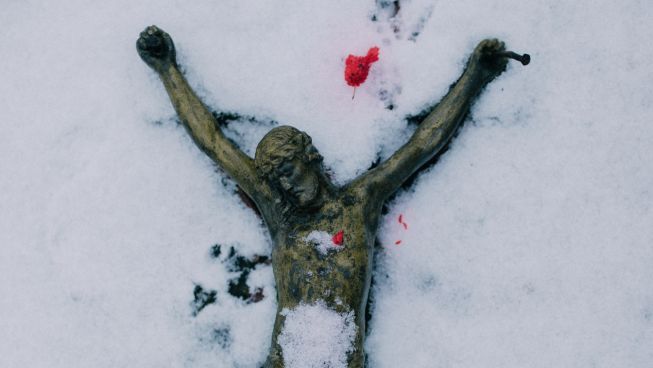Views from the beach

I don't pretend to understand suffering. Why a cancer victim needs to experience months of pain. Why a child dies and a family has no answers. Why one soldier dies and another lives. It’s random and cruel.
I just want to offer a view on suffering. In fact, 3 views from a beach...
Gallipoli
It's 99 years since ANZAC forces landed at Gallipoli. Over the years, the commemorative ANZAC Day service on the beach at Gallipoli has become something of a pilgrimage for Australians. The experience allows us to somehow put ourselves in the shoes of those who landed here in 1915, and to reflect on what they suffered.
I don't think it helps us understand the ANZAC's suffering, and it may even romanticise it. But it does give us a chance to honour people who suffered in our place, and to try and make sense of that suffering.
Long weekends
In 2014, Easter and ANZAC Day have combined to give us consecutive long weekends, so many of us are off to the beach. Perhaps it's the last chance for a swim before winter.
As we reflect on the spirit of ANZAC, often we attribute the lifestyle we enjoy to the sacrifices made by men and women in war. While this seems a trivial justification for pain and death, it is somehow appropriate that "Lest we forget" means that it's OK if sometimes we just go to the beach … and forget.
Galilee
In John's biography of Jesus, in chapter 21, John records meeting Jesus on a beach. In John's account it is the third time Jesus has appeared to his disciples since rising from the dead.
Jesus is able to offer us a unique perspective on suffering, having not only died but also having risen and spoken. So what does Jesus say about life, suffering and death?
Speaking to Peter, Jesus predicts the personal suffering Peter will face following him ...
Truly I tell you, when you were younger you dressed yourself and went where you wanted; but when you are old you will stretch out your hands, and someone else will dress you and lead you where you do not want to go.” Jesus said this to indicate the kind of death by which Peter would glorify God. Then he said to him, “Follow me!” - John 21:17-19
Peter, perhaps taken aback by the prospect of crucifixion, asks what will happen to John, another disciple and author of John's biography. Jesus' answer is surprising.
Because of this, the rumour spread among the believers that this disciple would not die. But Jesus did not say that he would not die; he only said, “If I want him to remain alive until I return, what is that to you?” - John 21:23
Jesus is making outrageous claims that he controls whether we live or die. But he also claims to be able make sense of our suffering - he tells Peter his death will “glorify God”.
Now if Jesus has indeed risen from the dead, perhaps he is qualified to make these claims.
But he is unlike the generals at Gallipoli who had the power of life and death over those they sent ashore. He calls people to follow him, not to go ahead.
Our problem with suffering is that we have no perspective to truly assess whether it was meaningful. Is my suffering worth it? When I’m dead I won’t be able to know. Is the suffering of others worthwhile? The noise and randomness of life, of battle, makes it hard to see.
The perspective Jesus offers us on that beach in Galilee is that those who follow him will live and suffer and die, knowing that he will return. And when he returns, he will raise us to life and we will know that our suffering has been worthwhile.
Photo by James Wheeler: https://www.pexels.com/photo/green-and-brown-mountain-beside-body-of-water-3948134/







